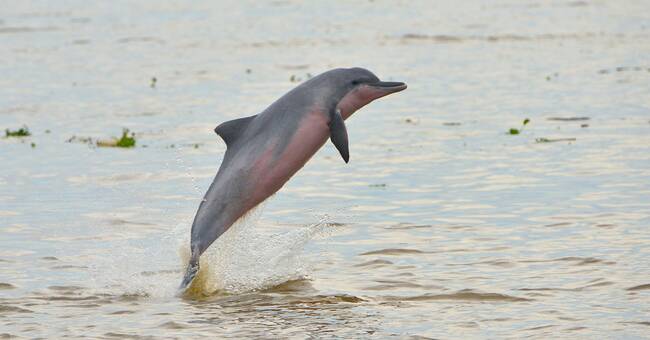Normally, a couple of new species end up on the list of already extinct animals - but this year that number was 31, says Craig Hilton-Taylor.
The "Red List" is maintained by the International Union for Conservation of Nature (IUCN), an international organization that promotes biodiversity.
The red list is revised once a year, and Craig Hilton-Taylor, who has worked at the IUCN for over 20 years, says that this year's update indicates a particularly serious situation.
- I was surprised at how many species have been added in the category "extinct" this year.
It is really a concern that we are losing so many species worldwide, says Hilton-Taylor to SVT News.
Three frog species became extinct
This year, among other things, three Central American frog species have been declared extinct.
The Asian shark species commonly known as the "lost shark" has been listed as "possibly extinct" as the species has not been seen since 1934.
Another sad news is that all the world's freshwater dolphins are now endangered.
There are four species of freshwater dolphins in the world, and this year the South American tucuxi dolphin that lives in the Amazon was added to the list of endangered species.
The Tucuxi dolphin is very popular and is recognizable by its special pink color.
- It's really sad, it's a fantastic species.
It is a beautiful animal that often appears in folk tales.
The biggest threats to tucuxi are emissions and fishing nets that they get caught in. It is also common for them to be hit by boats and to be killed by fishermen and then eaten or grazed.
Climate change biggest threat
Craig Hilton-Taylor says that pollution and climate change are the biggest reasons why we are losing species.
However, it is too early to say whether the corona crisis has affected animals and plants.
- It takes several years to see such reflections.
But corona can be good news for some animals that are left alone now, at the same time some become easier prey for poachers.
The positive news of the year is that the European bison have recovered significantly and have now ended up in the category "at risk of extinction" instead of the category "vulnerable".

